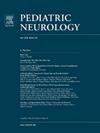Navigating the Emotional and Practical Challenges of Newborn Screening for Late-Onset Pompe Disease: Insights From Parental Perspectives
IF 2.1
3区 医学
Q2 CLINICAL NEUROLOGY
引用次数: 0
Abstract
Pompe disease (PD), an autosomal recessive lysosomal disorder, results in glycogen accumulation in muscle cells, leading to progressive muscle weakness and respiratory insufficiency. Newborn screening (NBS) has improved outcomes for infantile-onset PD by enabling early diagnosis and intervention with enzyme replacement therapy. NBS also identifies late-onset PD (LOPD) cases, wherein children have a wide clinical spectrum and may remain asymptomatic for years, placing families in uncertainty as “patients-in-waiting.” This study explores parental experiences following an LOPD diagnosis through NBS to identify gaps in support systems and improve care delivery. Parents of 42 children diagnosed with LOPD through NBS completed a survey regarding their diagnostic experiences, care access, anxiety, and health care professionals’ (HCPs’) roles. Survey responses were analyzed using descriptive statistics, thematic analysis, and Kruskal-Wallis tests. Parents valued clear guidance and condition-specific information when receiving NBS results. However, many reported insufficient support and HCP's limited LOPD knowledge. About 70.7% experienced reduced anxiety following the LOPD diagnosis, attributed to increased knowledge, supportive health care teams, and their child's stable health, although uncertainty persisted. Among those who saw an HCP, 71.9% reported positive impacts, including improved understanding and mental health support, although 19% thought counseling or information provided lacked clarity or actionable resources. Timely communication with knowledgeable HCPs and multidisciplinary support can potentially reduce the psychosocial burden on families receiving positive NBS results. Efforts should prioritize creating more resources for HCPs and improving communication to ensure consistent compassionate care.
导航情绪和新生儿筛查的实际挑战为晚发型庞贝病:从父母的角度的见解
庞贝病(PD)是一种常染色体隐性溶酶体疾病,导致糖原积聚在肌肉细胞中,导致进行性肌肉无力和呼吸功能不全。新生儿筛查(NBS)通过早期诊断和酶替代治疗干预改善了婴儿发病PD的预后。NBS还确定了迟发性PD (LOPD)病例,其中儿童具有广泛的临床谱,并且可能多年保持无症状,使家庭处于不确定的“等待患者”状态。本研究通过NBS探讨LOPD诊断后的父母经验,以确定支持系统的差距并改善护理服务。通过NBS诊断为LOPD的42名儿童的父母完成了一项关于他们的诊断经历、护理机会、焦虑和卫生保健专业人员(HCPs)角色的调查。使用描述性统计、专题分析和Kruskal-Wallis检验对调查结果进行分析。在收到国家统计局的结果时,家长们重视明确的指导和具体情况的信息。然而,许多人报告支持不足,HCP的LOPD知识有限。大约70.7%的人在LOPD诊断后焦虑减少,这归因于知识的增加,支持性医疗团队,以及他们孩子的健康稳定,尽管不确定性仍然存在。在接受HCP治疗的人中,71.9%的人报告了积极的影响,包括提高了理解和心理健康支持,尽管19%的人认为提供的咨询或信息缺乏清晰度或可操作的资源。与知识渊博的医务人员及时沟通并提供多学科支持,可能会减轻NBS结果呈阳性的家庭的心理社会负担。应优先为医护人员创造更多资源,并改善沟通,以确保持续的同情心护理。
本文章由计算机程序翻译,如有差异,请以英文原文为准。
求助全文
约1分钟内获得全文
求助全文
来源期刊

Pediatric neurology
医学-临床神经学
CiteScore
4.80
自引率
2.60%
发文量
176
审稿时长
78 days
期刊介绍:
Pediatric Neurology publishes timely peer-reviewed clinical and research articles covering all aspects of the developing nervous system.
Pediatric Neurology features up-to-the-minute publication of the latest advances in the diagnosis, management, and treatment of pediatric neurologic disorders. The journal''s editor, E. Steve Roach, in conjunction with the team of Associate Editors, heads an internationally recognized editorial board, ensuring the most authoritative and extensive coverage of the field. Among the topics covered are: epilepsy, mitochondrial diseases, congenital malformations, chromosomopathies, peripheral neuropathies, perinatal and childhood stroke, cerebral palsy, as well as other diseases affecting the developing nervous system.
 求助内容:
求助内容: 应助结果提醒方式:
应助结果提醒方式:


